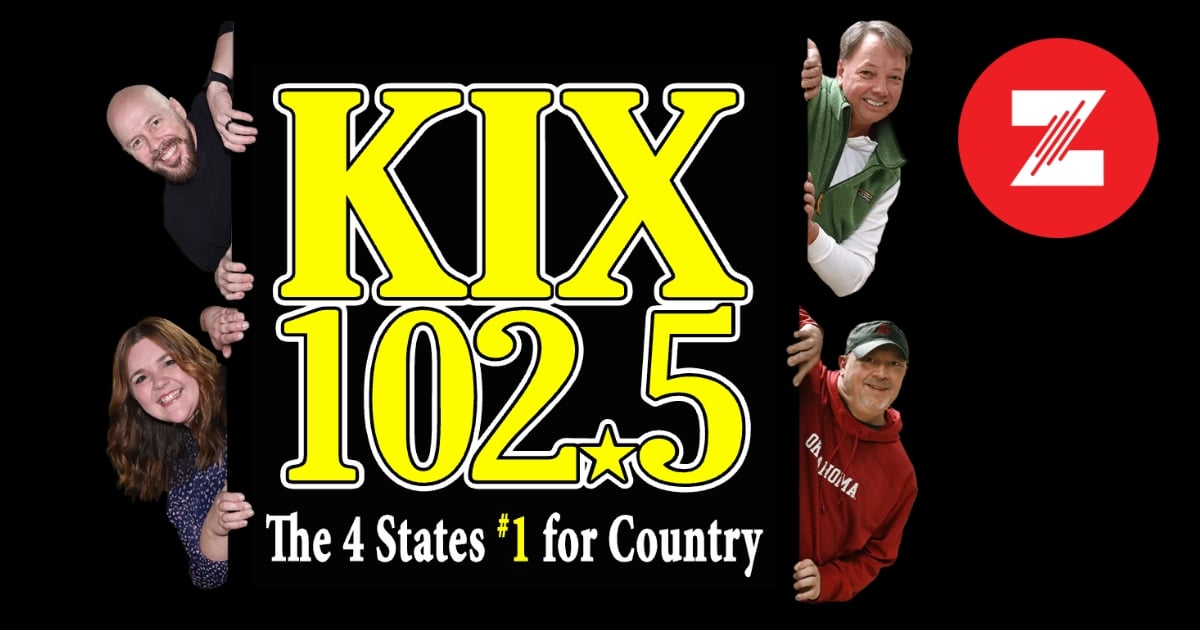Reviews Get Views: How Business Reviews Increase Your Online Visibility
Topics: Digital Marketing
Search Engine Marketing: How to Get the Most Out of a Limited Budget
Topics: Digital Marketing
Topics: Website Design, Digital Marketing
Getting the Most Out of Working with Local Influencers
Why Local Influencers Matter
The Unique Power of On-Air and Video Talent
- Multi-Platform Reach: From live radio to digital video, social media, and event appearances, our influencers connect with audiences wherever they are.
- Local Expertise: As residents and active members of the Four States, our team understands what resonates with local listeners and viewers, making your campaign more relevant and effective.
Best Practices for Working with Local Influencers
1. Set Clear Objectives
Define your campaign goals upfront—whether it’s increasing foot traffic, boosting web visits, or driving social engagement. Share these objectives with your influencer so they can tailor their approach for maximum impact.
2. Provide Authentic Experiences
Invite influencers to experience your product or service firsthand. The more familiar they are with your business, the more authentic and compelling their endorsements will be. This could mean a behind-the-scenes tour, a product trial, or a special event.
3. Collaborate, Don’t Script
Offer talking points and brand guidelines, but let your influencer speak in their own voice. Authenticity is key—audiences can tell when a message is genuine versus scripted. Trust your influencer’s expertise in communicating with their audience.
4. Embrace Multi-Channel Storytelling
Leverage the full range of your influencer’s platforms. Combine on-air mentions with social media posts, short-form videos, and live event appearances to create a cohesive, omnichannel campaign.
5. Measure and Optimize
Track key performance indicators, including web traffic, social engagement, and in-store visits. Share results with your influencer partner and be open to making adjustments for even better outcomes in future campaigns.
Zimmer Marketing: Your Local Influencer Advantage
Get in Touch with a Marketing Consultant
Topics: Radio Advertising, Marketing ROI, Social Media, Digital Marketing, Video Production, Content Marketing
Why Building a Library of Digital Assets is Essential
What Are Digital Assets?
- Your website (the digital storefront of your business)
- Logos and brand graphics
- Social media accounts and graphics
- Blog posts and articles
- Videos and podcasts
- Marketing copy and email templates
- Photography and product images
Why Is a Digital Asset Library So Important?
1. Consistency Across All Channels
2. Efficiency and Time Savings
3. Versatile Marketing Opportunities
4. Improved Collaboration
5. Protecting Your Brand
What Should Be in Your Digital Asset Library?
- Website files and backups
- High-resolution logos and brand guidelines
- Social media profile images and graphics (in multiple sizes)
- Blog articles and content calendars
- Product and team photos
- Videos and audio files
- Marketing collateral (brochures, flyers, ads)
How Zimmer Marketing Can Help
- Web Development: Build a modern, secure website that serves as your digital hub.
- Graphic Design: Develop eye-catching graphics that align with your brand.
- Video Production: Create professional videos for every platform.
- Copywriting: Craft compelling marketing copy and blog content.
- Social Media Management: Design and schedule posts using your digital assets.
Get in Touch with a Marketing Consultant
Topics: Integrated Marketing, Advertising Creative, Website Design, Digital Marketing, Branding, Video Production
What Devices Are Your Audiences Using? | Optimizing for Mobile
How Device Choice Impacts Your Website and Marketing
Mobile Devices
Mobile usage continues to dominate, with more people searching, shopping, and engaging with brands on their smartphones than ever before. However, the small screen size of mobile devices can make it more challenging for your website to appear in organic search results. Users often see fewer organic listings before scrolling, so competition is fierce. On the other hand, mobile devices are ideal for map results and sponsored ads, especially for local businesses, since these elements are prominently displayed at the top of search results.
Desktops and Laptops
Larger screens provide more space for organic search results, detailed content, and complex layouts. Desktop users may be more likely to engage with in-depth information or complete longer forms, making this device type ideal for certain types of conversions.
Tablets
Tablets offer a middle ground between mobile and desktop, with moderate screen size and portability. They’re often used for browsing and shopping at home, so it’s important to ensure your site looks great and functions smoothly on these devices as well.
Why Responsive Design and a Mobile-First Approach Matter
Responsive design reduces frustration, increases time spent on your site, and improves the likelihood of conversion.
Google and other search engines prioritize mobile-friendly sites in their rankings, especially for users searching on mobile devices.
Optimizing Video and Images for Every Device
Vertical video ads (such as 9:16 aspect ratio) perform exceptionally well on mobile devices, as they fill the screen and match the way users naturally hold their phones. These formats often see higher engagement rates compared to traditional horizontal videos.
Use flexible, high-resolution images that load quickly and look crisp on both small and large screens. Consider creating multiple versions of your graphics for different platforms and devices to maintain brand consistency and visual appeal.
Device-Specific Search and Ad Strategies
With limited screen space on mobile, focus on concise, relevant content and local SEO to increase your chances of appearing in top results.
Sponsored Ads and Maps
Paid search and map listings are highly visible on mobile devices, making them effective tools for driving immediate traffic and conversions, especially for local businesses14.
Landing Pages
Ensure your landing pages are optimized for mobile, with fast load times, easy navigation, and clear calls-to-action. A frustrating mobile experience can quickly drive potential customers away.
Take Your Website to New Heights
Get in Touch with a Marketing Consultant
Topics: Website Design, Digital Marketing
Is Your Business Listing Information Consistent and Visible Across the Internet?
Topics: Digital Marketing, Online Sales
From Click to Conversion: Tracking the Customer Journey with Programmatic Advertising
Topics: Integrated Marketing, Digital Marketing
What Is the Buyer's Journey? | Marketing Answers
Topics: Integrated Marketing, Radio Advertising, Marketing Strategy, Marketing ROI, Consumer Behavior, Digital Marketing, Branding, E-commerce, Online Sales
Empowering Organic Online Growth: 5 Tips for Keyword Research
Topics: Website Design, Digital Marketing










